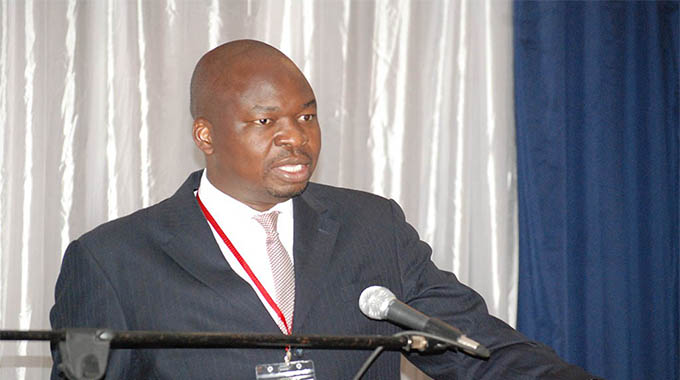EDITORIAL COMMENT: Business should play ball

ON Wednesday, Government revealed that Zimbabwe has enough foreign currency for businesses to fund their foreign payments if the interbank market starts operating efficiently.
Secretary for Finance and Economic Development Mr George Guvamatanga said the country was generating more than US$1,2 billion per year in export proceeds which should be enough to oil the operations of companies if it is taken to the interbank market. “Once we get the interbank to operate efficiently, there is enough foreign currency for everyone.
The only problem is that at the moment it (forex) has been inefficiently allocated,” said Mr Guvamatanga. “As long as it is efficiently allocated, we have more than enough foreign currency.
“If you look at our total export receipts and compare them to our neighbouring countries and other countries in Africa which I will not mention, we actually have twice or three times the export proceeds compared to them and they do not have the same challenges we are facing.” Zimbabweans’ insatiable appetite for imports was draining forex while some exporters and individuals are holding onto their money in nostro and offshore accounts without liquidating it for unclear reasons.
As at Friday last week, the country had US$800 million in nostro FCAs while US$700 million was due to be received in export receipts, making the country liquid. “The challenge has been around having those funds available on the interbank market, which are the issues addressed by the Governor (of the Reserve Bank of Zimbabwe Dr John Mangudya) yesterday (Tuesday).
“It is not the responsibility of the Government or the Reserve Bank of Zimbabwe to provide the market with foreign currency; it is industry, the miners, tobacco merchants, those are the ones who have got access to foreign currency and are the ones that should bring foreign currency into the country,” said Mr Guvamatanga.
We find it staggering that Zimbabwe is generating so much foreign currency but is struggling to grow its economy which is currently going through some upheavals linked to ongoing reforms and the activities of speculators.
The country’s forex earnings rival those of stronger African economies such as Kenya but the contrast between the two nations’ economies is so vast it beggars belief. It is therefore important to locate Zimbabwe’s real problems in terms of economic management so that they are fixed and the country regains it’s place in the community of nations. As it is, Government has set the ball rolling by addressing some of the bottlenecks impeding economic growth through a raft of austerity measures contained in the Transitional Stabilisation Programme and monetary interventions announced by the Reserve Bank of Zimbabwe.
These have had the effect of correcting the economic fundamentals, setting the stage for growth. In this process, Government has been grappling with other challenges and it doesn’t help that business has not been playing ball with some companies still engaged in nefarious activities associated with the hyperinflationary era of 2008 when Zimbabwe was almost brought to its knees. Granted, confidence in the country’s banking system is still at an all-time low given the painful memories of that period when some companies and individuals lost their forex earnings but the new dispensation has demonstrated utmost good faith in its dealings with business. So far since the separation of RTGS accounts and Nostro FCAs, the deposits continue to pile up in the latter with the latest figures putting them at US$800m.
Government is, however, concerned that the money is not finding its way into the interbank market with its owners salting it away in some foreign accounts. While their trepidation with depositing their earnings locally was understandable before Monday’s announcement of a liberalised exchange rate for the interbank, we expect them to start trading on the local market going forward.
With US$1,2 billion forex receipts a year, Zimbabwe has more than enough liquidity to meet its requirements be it fuel, electricity imports and food. We therefore implore businesses, particularly those in the export sector, to bring back their earnings and openly trade them on the interbank market because it is not only the morally right thing to do but it is also safe. Patriotic businesspeople who have the interests of their country at heart will not seek to profit from Zimbabwe’s resources in vain.
We are certain monetary authorities are aware of the activities of exporters and where they stash their foreign currency earnings. We are also cognisant of the law that says exporters are allowed to hold on to forex earnings for 90 days. It would be regrettable for the RBZ to be forced to apply the law on errant exporters. Businesses should realise that by repatriating funds from abroad and trading them on the interbank, they are contributing to the country’s improved liquidity situation and enhancing the productive capacity of their fellow companies. This in turn ramps up exports and the generation of foreign currency. Conversely, by continuing to spirit forex out of the country, they are slowly killing the goose that lays the golden egg. In the end no one wins.











Comments